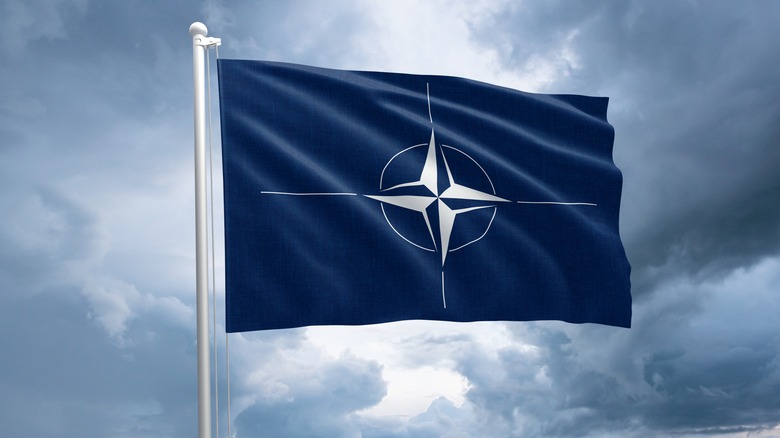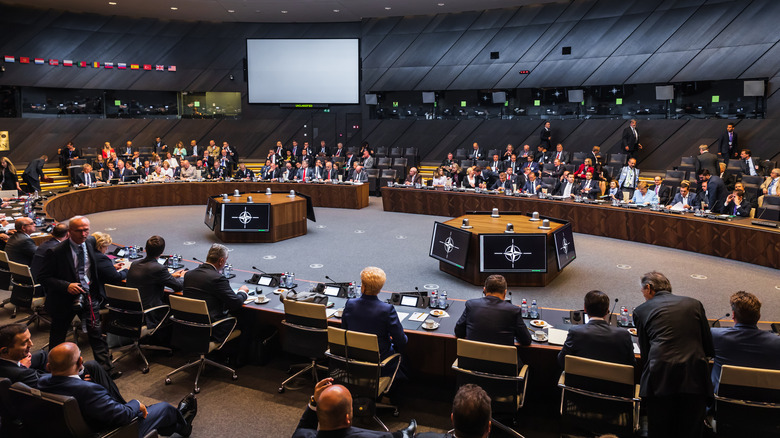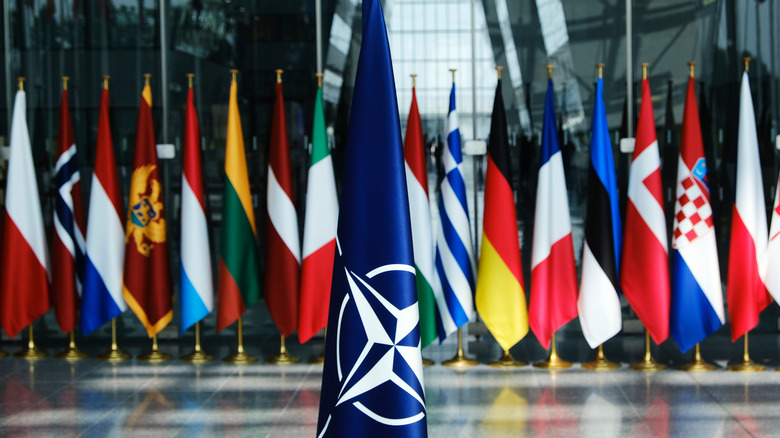What Does It Mean To Invoke Article 4 Of NATO?
The North Atlantic Treaty Organization (NATO) is a security alliance established in 1949 with the goal of safeguarding the security and freedom of nations through military and political channels. The alliance consists of 30 North American and European countries working together to achieve a common mission (via NATO). Representatives from allied countries congregate to make crucial decisions in guaranteeing peace and political independence of the member nations.
James Stavridis, who was a Supreme Allied Commander at NATO, wrote in an article he contributed to Time that the alliance's initial goal was to "stop the Soviets." Changes have been made in the organization throughout the years; nations joined and new campaigns were launched, but there were disagreements within the alliance as well. However, Stavridis noted that the start of the Russo-Ukrainian War in 2014 reignited the organization's drive. "Putin's subsequent actions, including the shooting down of a Malaysia Airlines jet over Ukraine and increased aggression in the air and on the high seas around NATO's periphery, drew the alliance together," Stavridis wrote.
The foundations of NATO were made official with the signing of the North Atlantic Treaty, also known as the Washington Treaty, on August 24, 1949. It consists of 14 articles that detail the principles of the organization.
What is Article 4 of NATO?
Article 4 of NATO states, "The Parties will consult together whenever, in the opinion of any of them, the territorial integrity, political independence or security of any of the Parties is threatened" (per NATO). Whenever a NATO member state feels threatened, whether the threat comes from a terrorist group or another nation — it can request a formal consultation with alliance members. Conversations among member representatives take place to discuss the best course of action to take if they find that there is, indeed, a risk. However, a consultation doesn't necessarily mean that NATO must act to counter the threat, as reported by Deutsche Welle,
There are different types of consultations that can happen when Article 4 is invoked, and they may be formal or informal discussions. As noted by NATO, consultations can be as basic as member nations stating facts and providing opinions on the matter discussed, or as arduous as planning an action to deal with the threat and reaching unanimity.
How many times has article 4 been invoked?
Since NATO's establishment in 1949, Article 4 has been invoked a total of seven times. In February 2003, Turkey invoked Article 4 when the nation felt threatened by the conflict happening in its neighboring nation, Iraq. Turkey triggered Article 4 three times in 2012 after several incidents with Syria that resulted in the death of Turkish civilians. Poland invoked Article 4 in March 2014, after fearing for the nation's security because of the war between neighboring Poland and Ukraine. In July 2015, Turkey, again, requested a consultation per Article 4 as a result of terrorist attacks.
As of writing, the most recent time Article 4 was invoked was in February 2022, when eight member nations requested a consultation. As noted by The Conversation, that was the first instance when multiple nations invoked Article 4 for the same reasons simultaneously, which presented how grave the threat was. The eight member nations — Slovakia, Romania, Poland, Lithuania, Latvia, Estonia, Czechia, and Bulgaria — triggered Article 4 after the ongoing Russo-Ukrainian War escalated, and Russia's Vladimir Putin announced the invasion of Ukraine on February 24.


